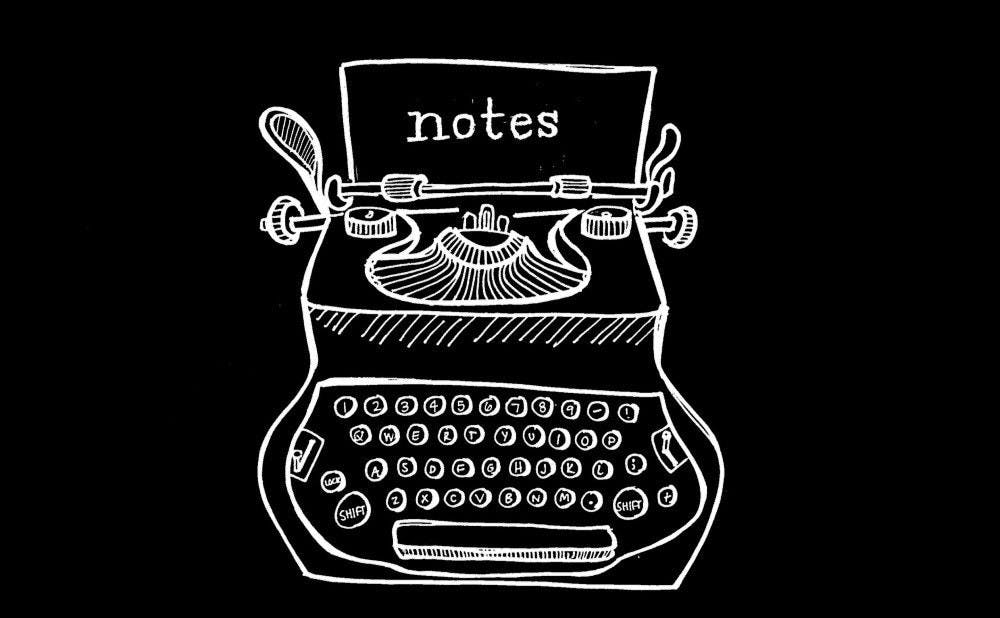The death of Anthony Bourdain in June came as a shock to fans of the chef, author and media personality. For me, it was a particularly unnerving loss: At the time, I was just two weeks into an internship with a company closely associated with Bourdain’s CNN series, “Parts Unknown.” Although I never had the chance to meet him personally, I found that, in my work, I was drawn closer to what so many people found special in Bourdain.
Today, I count myself among Bourdain’s fans. But I’ll confess that, until shortly before his death, I knew very little about the man. In my mind, he was in the same league as Gordon Ramsay and Guy Fieri, one of the dozens of blowhard celebrity chefs that now populate cable food channels. It was only after closely viewing his show and reading his work—including the 1999 New Yorker essay that “started it all,” a sort of manifesto for the restaurant industry—that I grasped how unparalleled Bourdain’s approach to food, to travel and to culture was. Though he had his beginnings in restaurant work, Bourdain resisted easy categorization as a media figure, and his work leaves us — and particularly journalists — important lessons about asking good questions and engaging with communities.
Wading through the steady stream of obituaries that arrived within the weeks following Bourdain’s death, I was struck by their sheer uniformity from publication to publication (with a few noteworthy exceptions). Certain words and phrases to describe the chef would crop up again and again, largely centering around his propensity for sharp wit and vulgar language: “bad-boy chef,” “barbed tongue,” “bile” and the like.
But these tributes seemed to me to utterly miss the core of Bourdain’s impact on the world. As anyone who’s seen more than a few minutes of “Parts Unknown” can attest, Bourdain’s primary ethos, when traveling from destination to destination and meeting the people who live there, is not one of anger or self-importance (apparently, Ramsay’s got that covered). Rather, it’s one of compassion, curiosity and a genuine appreciation for the senses. Bourdain actively minimized himself and put his guests — who were, more realistically, his hosts — in the foreground, never playing the role of the loudmouthed, gallivanting Westerner. Scan through any transcript of “Parts Unknown,” and you’ll quickly notice that the bulk of Bourdain’s dialogue doesn’t consist of witty banter but of questions—and simple questions at that: What do you eat? What do you enjoy? How do you navigate your daily life?
If Bourdain had any contempt, it was reserved for those who abused their power, the Harvey Weinsteins and Henry Kissingers of the world. He used his role to give agency to the very people who weren’t in those positions, challenging, in the process, both his audience’s preconceptions and his own: In an oft-cited 2016 episode of “Parts Unknown” that focused on Houston, for example, he bypassed the myth of conservative, white Texas in favor of the thriving immigrant communities that tell the story of the city today. The result was a celebration of America’s diversity that shot back at the “Make America Great Again” sloganeering so prominent in the news.
Bourdain expressly denied being a journalist — his title of choice was “enthusiast” — but the way he interacted with his subjects both exposes the limitations of traditional journalism and presents a valuable model for its future. In a conversation with Popula’s Maria Bustillos, published in July, that was likely his final interview, Bourdain elaborated on the advantage of his position as a traveler:
“If you’re a journalist tasked with an agenda, you know, you’re there to report a story, and you come right out with it. You’re going right into some very difficult areas. Whereas I have the luxury, I’m there to eat! Presumably. I’m there to eat, and I’m asking very simple questions. … And I find, again and again, just by spending the time, by asking very simple questions, people have said the most astonishing things to me.”
In this explanation of his strategy, Bourdain gets to the heart of an essential subjectivity that is missing in much contemporary journalism. Popular entertainment though it may be, “Parts Unknown” no less captures a certain kind of “truth” through shared humanity than that which journalists seek through the veneer of objectivity.
In hindsight, there is something almost radical about the fact that “Parts Unknown” occupied a primetime slot on CNN. It’s rare to see such intelligent yet human-focused coverage on such a high platform, and Bourdain’s absence will undoubtedly leave a void that has yet to be filled by other programs like his. It’s quite probable, too, that no one will. Three months later, though, I’m grateful to have shared just a little bit of Anthony Bourdain’s experience of the world — a figure who constantly challenged my expectations, just as he so often did to the world’s in his travels.
Will Atkinson is a Trinity junior and Recess culture editor.
Get The Chronicle straight to your inbox
Signup for our weekly newsletter. Cancel at any time.

